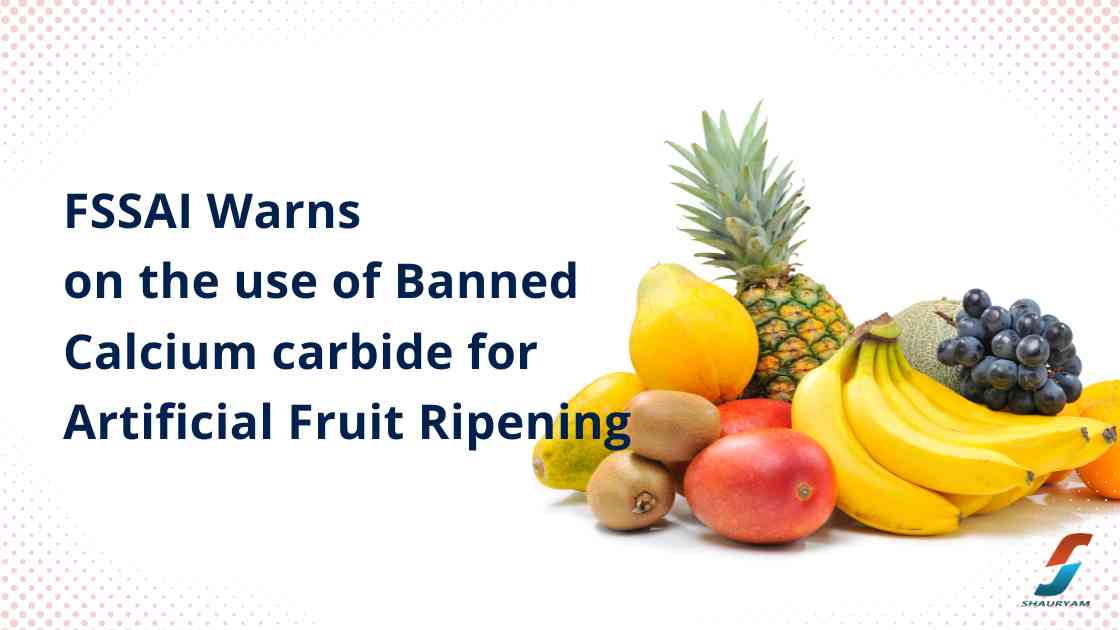FSSAI has warned on the use of banned Calcium carbide for artificial fruit ripening as it has found that the traders/handlers are still indulging in the use of the prohibited material or are using the approved sources of ethylene gas in an incorrect manner like dipping the fruits in ripening agent solutions which may render the fruits unsafe for human consumption.
1) What is the natural ripening of fruit?
Ripening of fruits is a natural phenomenon that makes the fruits edible, palatable, and nutritious for consumers.
2) What is the artificial ripening of fruit?
Artificial ripening is a process by which fruits are ripened artificially in a controlled manner to achieve a desired outcome like optimum ripening and better consumer acceptance apart from ensuring a longer shelf life of fruits.
3) What is Calcium carbide or Masala?
Calcium carbide is a chemical compound used as a ripening agent for mangoes, bananas, jackfruits, litchis and other fruits also. Packets of calcium carbide powder are kept in the container of fruits where in contact with moisture, acetylene gas is produced and acts as a ripening agent.
4) Why Calcium carbide is banned as a ripening agent?
Due to the presence of traces of arsenic and phosphorus which is harmful to humans and may cause dizziness, frequent thirst, irritation, weakness, difficulty in swallowing, vomiting, skin ulcer, etc. Calcium carbide is banned as a ripening agent.
5) What is the Standard Operating procedure for artificial ripening using Ethylene gas?
FSSAI has recognised ‘ethylene’ as a safe ripening agent at a concentration of up to 100 ppm (100μl/L) depending upon the crop, variety, and maturity through sources like ethephon, ethereal etc.
Key takeaways from the SOP for the artificial ripening of fruits.
- The use of carbide gas or acetylene gas is not permitted for the artificial ripening of fruits under the Food Safety and Standards Regulations, 2011due to the potential health hazards.
- Ethylene gas can be used for artificial ripening at a concentration of up to 100 ppm (100µl/L).
- Ethylene plays a vital role in the natural ripening of fruits. It is a hormone produced naturally within the fruits to stimulate the ripening process.
- Ethylene, being a natural hormone does not pose any health hazard to consumers.
- External application of ethylene gas generated from various sources such as ethylene gas cylinders, compressed ethylene gas, ethanol, ethephon, etc. can be used on fruits to trigger the ripening process in fruits.
- Any source of ethylene gas coming in direct contact with fruits is not permitted.
- Consumers should purchase fruits from known sellers/reputed stores/dealers who declare that the fruits sold have not been ripened using harmful/banned chemicals.
6) What are actions taken against the use of Calcium carbide?
Any such incidence would be dealt with stringently and serious action will be taken against the person(s) indulging in such unlawful practices as per the provisions of FSS Act, 2006 and Rules/Regulations.
Learn more: FSSAI Starts Enforcement Drive Against Non-Compliant Nutraceuticals Products and Fake Claims





